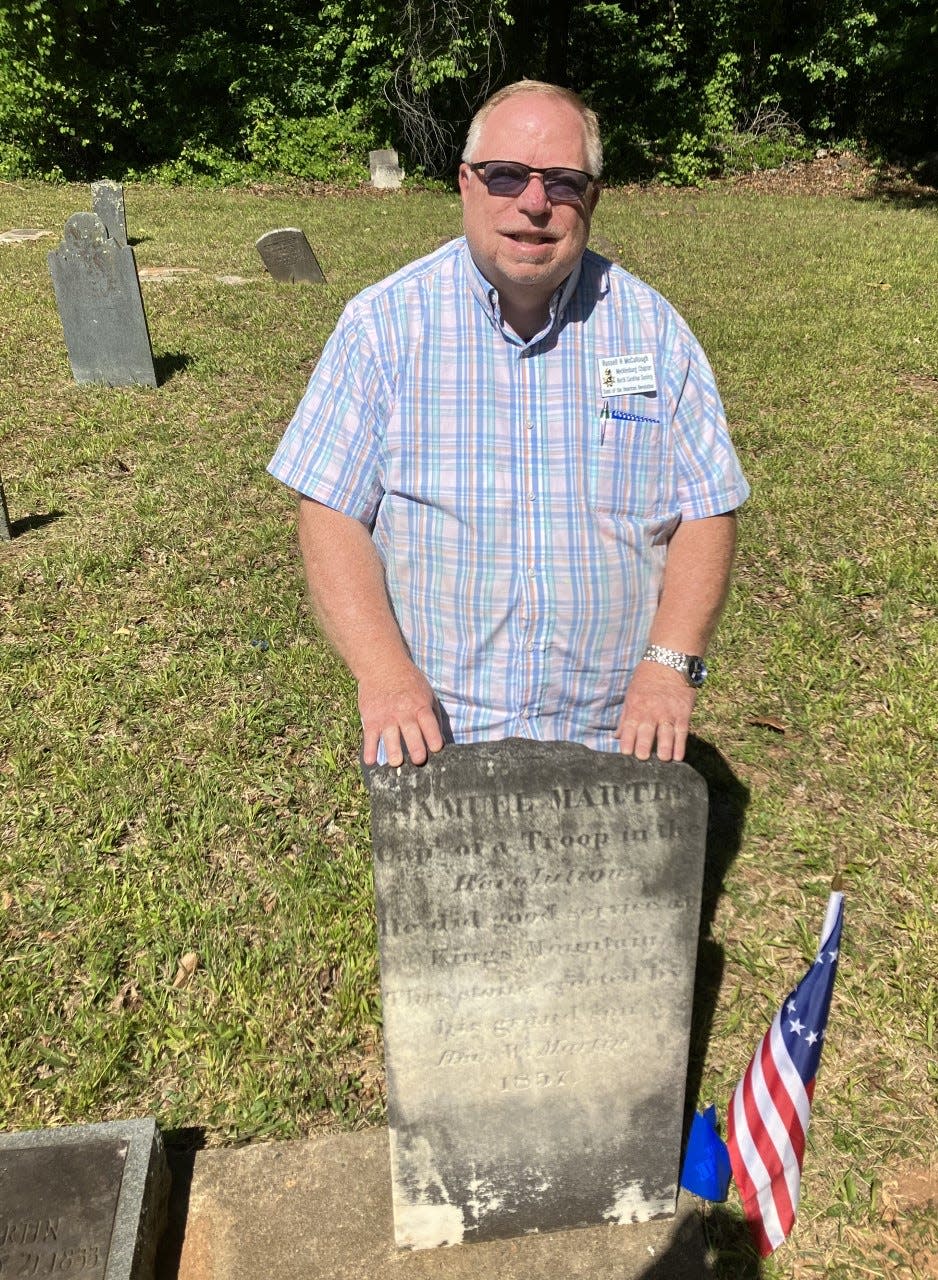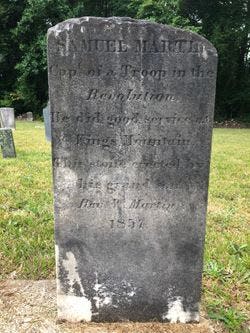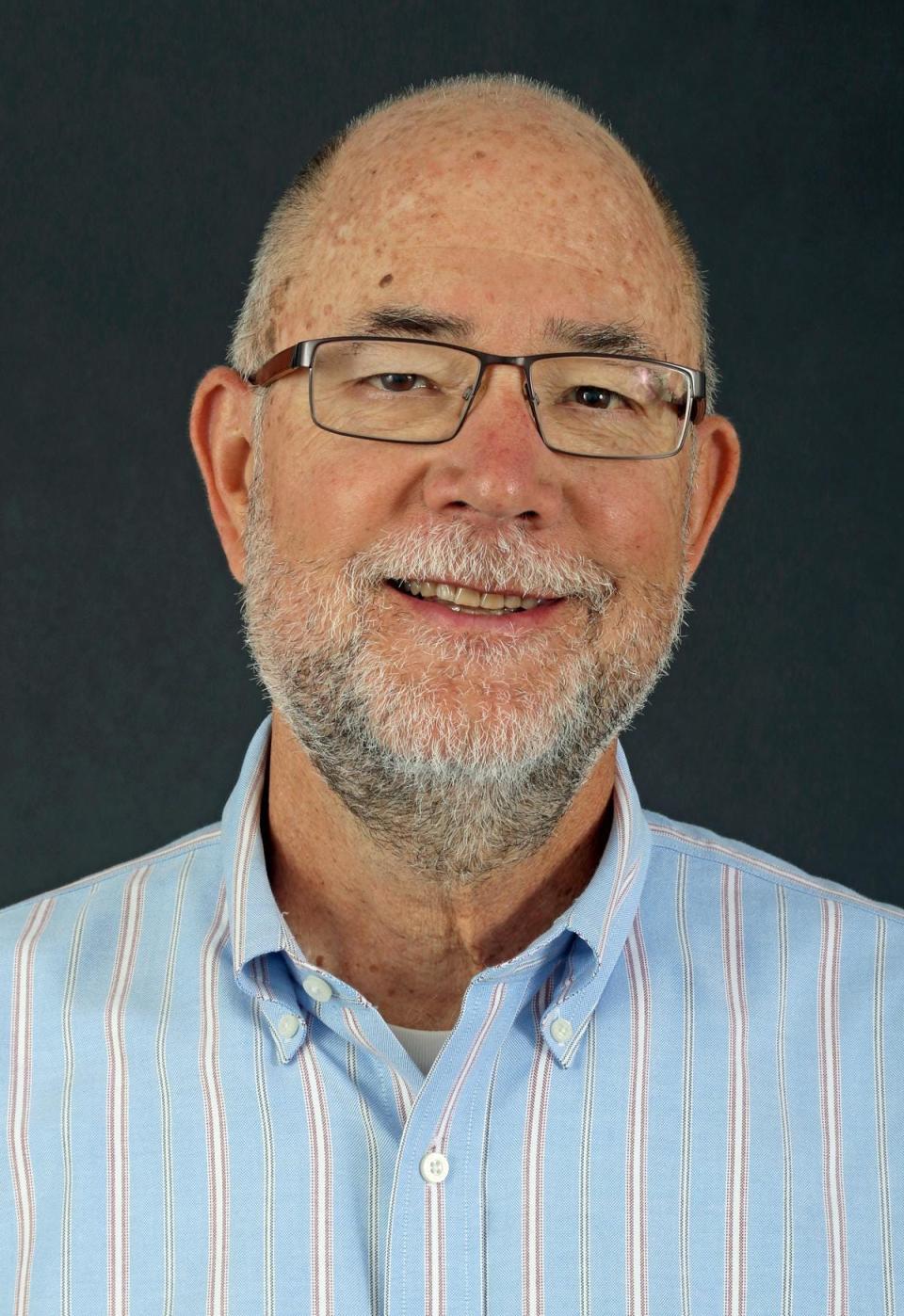Groups aim to commemorate graves of Revolutionary War heroes

The May sun is brilliant but its heat is tempered by a brisk north wind as we stand in the middle of one of the oldest cemeteries in all of Gaston County.
A perfect day for some storytelling, and Russ McCullough loves to tell a good story.
McCullough is a Church of Christ minister and also a real estate developer, but on this day he speaks as chaplain and secretary of the Mecklenburg County Sons of the American Revolution.
McCullough has invited me to the cemetery in north Belmont to see the recently marked grave of Samuel Martin, a captain of a troop in the Revolutionary War who performed heroically at the Battle of Kings Mountain on Oct. 7, 1780.
But before walking over to the grave, McCullough pauses to talk about what the Revolution was like in the South and in what is now Gaston County.

"In the South, it was basically a civil war," McCullough said. "Families against families, brothers against brothers. In many ways it was a preview of what would happen in the Civil War 90 years later."
Gaston County in 1780 was "basically the Wild West frontier," McCullough said. Part of the county was in Mecklenburg, part in Lincoln. Gaston County would not be officially formed until 1846.
"Goshen Presbyterian was the mother church for this entire area," he continued. "Seventy percent of the people living here then were Presbyterians. Most of the others were Anglicans. And that was the dividing line."
Anglicans tended to be loyal to the Mother Church and the Mother Country. Presbyterians were more inclined to support rebellion.
It was not until British Gen. Charles Cornwallis and his subordinates began to move into the South that local feelings against the crown began to harden and the local populace grew determined to drive the invaders out.
"Even British sympathizers became patriots," McCullough said, "when their homes and families were threatened."
The patriot forces triumphed at the Battle of Cowpens, at the Battle of Kings Mountain, and in October of 1781, Cornwallis surrendered his army to Gen. George Washington at Yorktown and American independence was won.
So what led McCullough to become involved with the Sons of the American Revolution and to become passionate about marking the graves of patriot soldiers?
"It is a wonderful experience and a wonderful honor to help bring someone's memory back to life," he responded.
"The 250th anniversary of our independence is coming up in just four years," he continued. "What better time to remember our nation's heroes and the patriots who gave their blood to birth this nation?"
Samuel Martin is not the only Revolutionary War patriot whose remains lie in the Goshen Presbyterian Cemetery, McCullough said.
Working together with the Daughters of the American Revolution, McCullough's organization has determined that up to two dozen other patriot graves are there.
"We will be identifying and we will be marking graves over the months to come," he said. "This is an ongoing commitment."
Bill Poteat may be reached at wlpoteat@yahoo.com.

This article originally appeared on The Gaston Gazette: Revolutionary War hero grave found in Belmont.

 Yahoo Autos
Yahoo Autos 